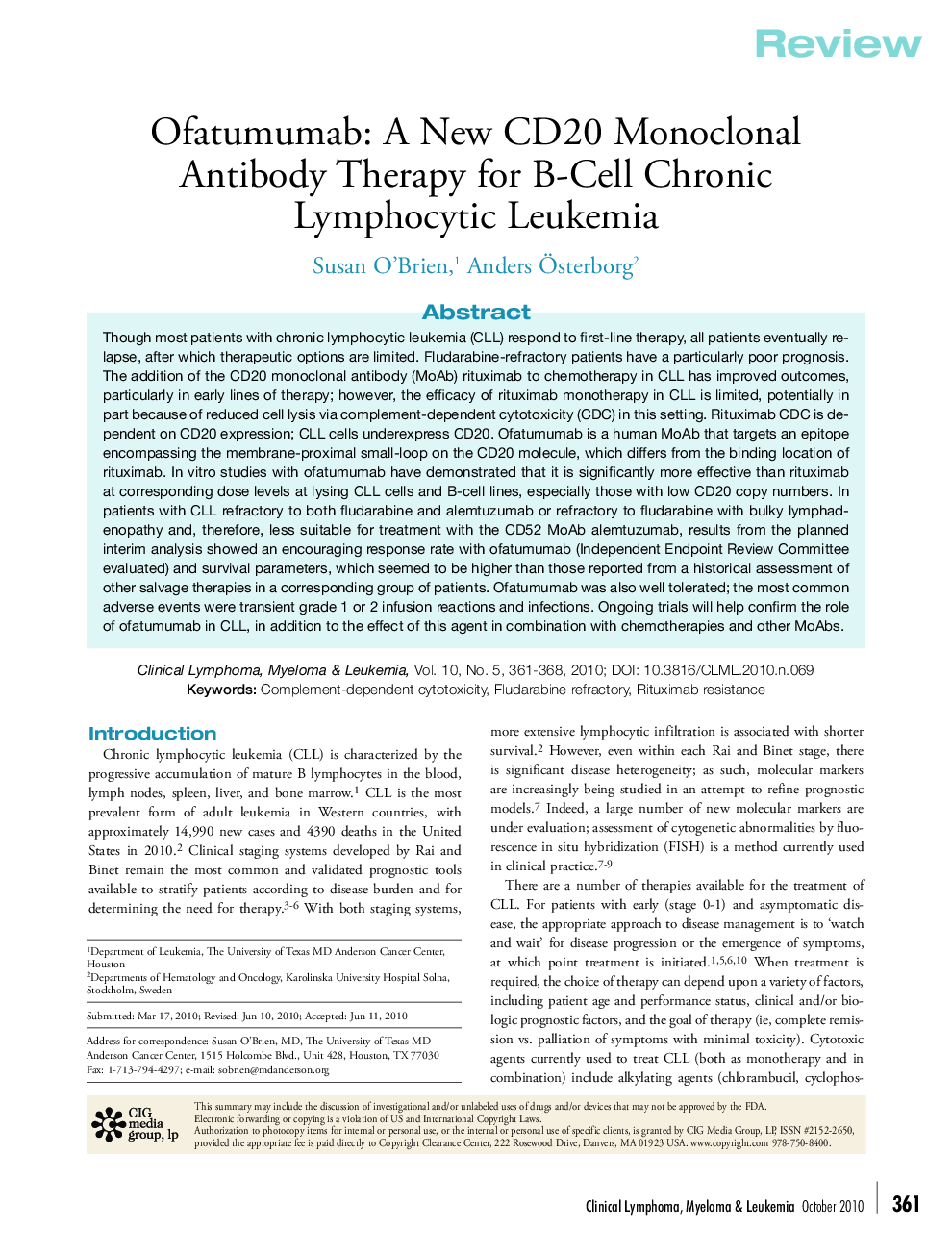| Article ID | Journal | Published Year | Pages | File Type |
|---|---|---|---|---|
| 2755485 | Clinical Lymphoma Myeloma and Leukemia | 2010 | 8 Pages |
Though most patients with chronic lymphocytic leukemia (CLL) respond to first-line therapy, all patients eventually relapse, after which therapeutic options are limited. Fludarabine-refractory patients have a particularly poor prognosis. The addition of the CD20 monoclonal antibody (MoAb) rituximab to chemotherapy in CLL has improved outcomes, particularly in early lines of therapy; however, the efficacy of rituximab monotherapy in CLL is limited, potentially in part because of reduced cell lysis via complement-dependent cytotoxicity (CDC) in this setting. Rituximab CDC is dependent on CD20 expression; CLL cells underexpress CD20. Ofatumumab is a human MoAb that targets an epitope encompassing the membrane-proximal small-loop on the CD20 molecule, which differs from the binding location of rituximab. In vitro studies with ofatumumab have demonstrated that it is significantly more effective than rituximab at corresponding dose levels at lysing CLL cells and B-cell lines, especially those with low CD20 copy numbers. In patients with CLL refractory to both fludarabine and alemtuzumab or refractory to fludarabine with bulky lymphadenopathy and, therefore, less suitable for treatment with the CD52 MoAb alemtuzumab, results from the planned interim analysis showed an encouraging response rate with ofatumumab (Independent Endpoint Review Committee evaluated) and survival parameters, which seemed to be higher than those reported from a historical assessment of other salvage therapies in a corresponding group of patients. Ofatumumab was also well tolerated; the most common adverse events were transient grade 1 or 2 infusion reactions and infections. Ongoing trials will help confirm the role of ofatumumab in CLL, in addition to the effect of this agent in combination with chemotherapies and other MoAbs.
